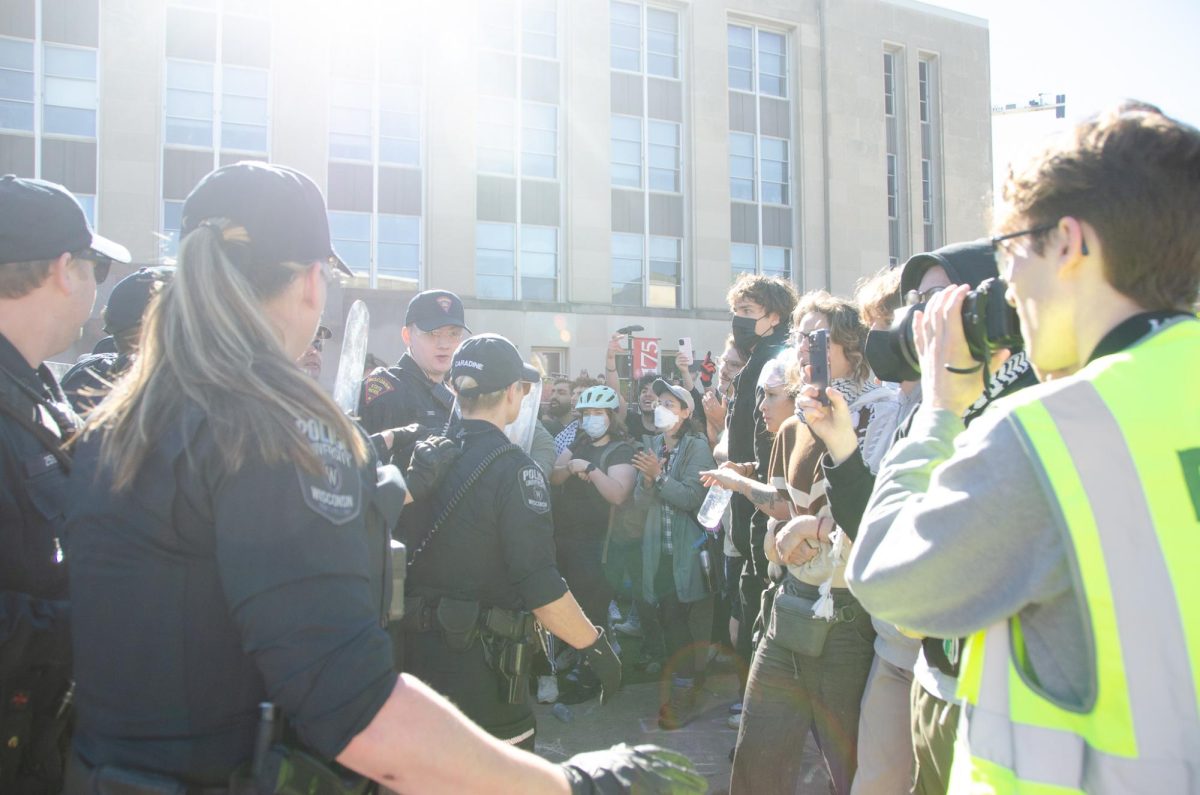Editor’s note: This article was updated to remedy a factual inaccuracy regarding the nature of the hearings.
Students for Justice in Palestine gathered on the lawn outside Gordon Dining and Events Center Wednesday morning to protest a disciplinary hearing regarding a student accused of misconduct during the encampment demonstration last spring.
On April 29, activists started an encampment protesting the war in Gaza and demanded a divestment of UW from Israel.
The encampment lasted 12 days, ending May 10 when the UW administration reached an agreement with protesters.
According to investigating officer Ryan Podolak from the Office of Student Conduct and Community Standards, the student obstructed the police by linking arms with other students and refusing to both leave the premises and take down tents.
During the first part of the hearing, the accused student was given the opportunity to state his case before the hearing examiner.
The student said he was walking to class the morning of May 1 when he noticed police officers in riot gear at the encampment.
The accused said he felt obligated to step in and help protect his peers. An officer later directed him out of the encampment and into Memorial Union when he was found obstructing the police by linking arms and refusing to leave.
According to the student’s statement, the officer initially chose not to handcuff him, remarking that he was being cooperative, but after stating his name the police detained him.
“The moment they heard my Latino name they decided to cuff me,” he said.
In a later portion of the hearing, the accused student had a total of three witnesses testify on his behalf.
UW Geography Department Chair Sarah A. Moore, who the student has worked closely with, expressed her disappointment with the events that occurred that morning, stating that she did not think police involvement would happen that morning.
“I, like many others, was disappointed the Chancellor called the police,” Moore said.
Other witnesses expressed similar disappointment in the administration for their actions involving the encampment and the further disciplinary action being taken in this student’s case.
The student said the OCCS unjustly applied it’s resources to prosecute him and that the case has distracted from his studies.
The hearing examiner will consider the discussion when evaluating the case, and a decision will reach the student generally within 10 days per FERPA hearing procedure regulations.


